Break Free From Plastic (BFFP) released a first-of-its-kind report, and Trash Hero Indonesia co-produced it.
For the past six years, members of the BFFP movement have worked together, collecting information about who is responsible for the plastic pollution we find on our beaches, rivers, and towns. The annual brand audit report compiles global data and shines a light on the brands responsible for plastic pollution. This information can then be used to advocate for systemic change. In fact, when New York Attorney General James filed a lawsuit against PepsiCo for “polluting the environment and endangering public health through its single-use plastic bottles, caps and wrappers”, data from the brand audits was cited in the press release.

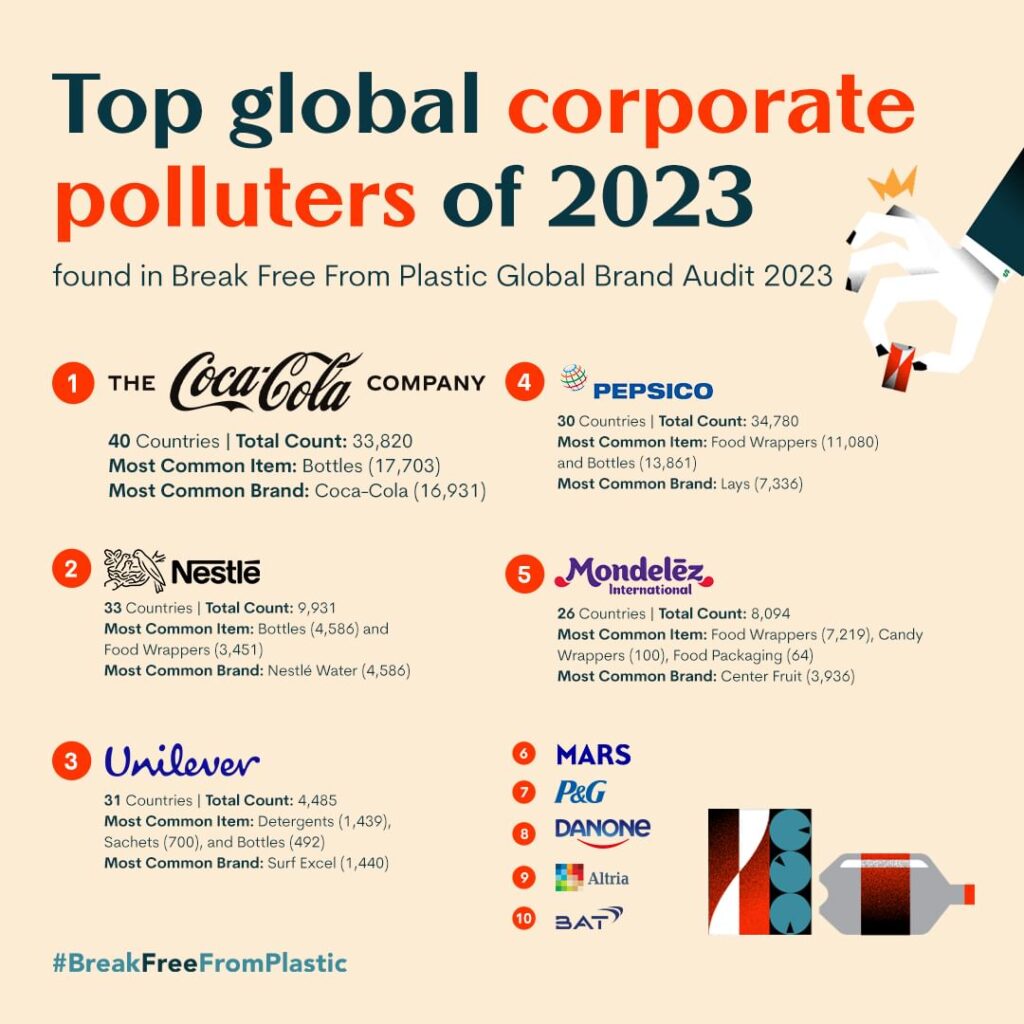
Previous brand audit reports have collected data on all types of plastic. However, sachet pollution has increased at alarming rates across Asia, leading many environmental groups to demand that companies phase out sachets. To better understand the scale and source of sachet pollution and to be able to push for real change, a group of BFFP NGOs from Indonesia, Thailand, Vietnam, and the Philippines came together to take action.
A sachet is an environmental nightmare. Most of them have an airtight inner plastic layer that protects the product, a foil barrier against moisture and heat, and an outer flexible layer that can be printed on. An adhesive holds it all together. The multiple layers make it impossible to recycle effectively. Their light weight means they often end up in forests, rivers, and oceans. From here, animals mistake them for food and get sick or even die after consuming them. Discarded sachets also worsen flooding by clogging waterways and drains, leading to more water-borne diseases. For something that is used for seconds, they have a very long-lasting impact! This devastating impact has been widely recognised, with even former CEO of Unilever, Paul Polman, stating, “We need to get rid of sachets for good”. Yet their use worldwide continues. Our article “Exposing the hidden cost of sachets” dives into the environmental and social issues of sachets in more detail.
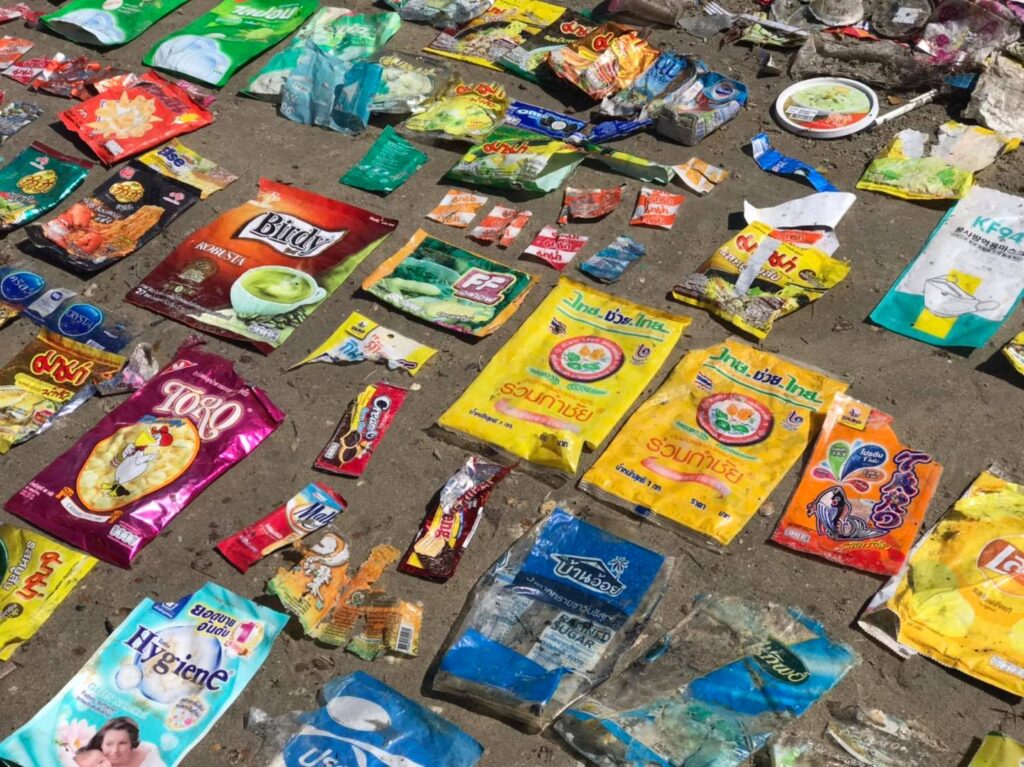
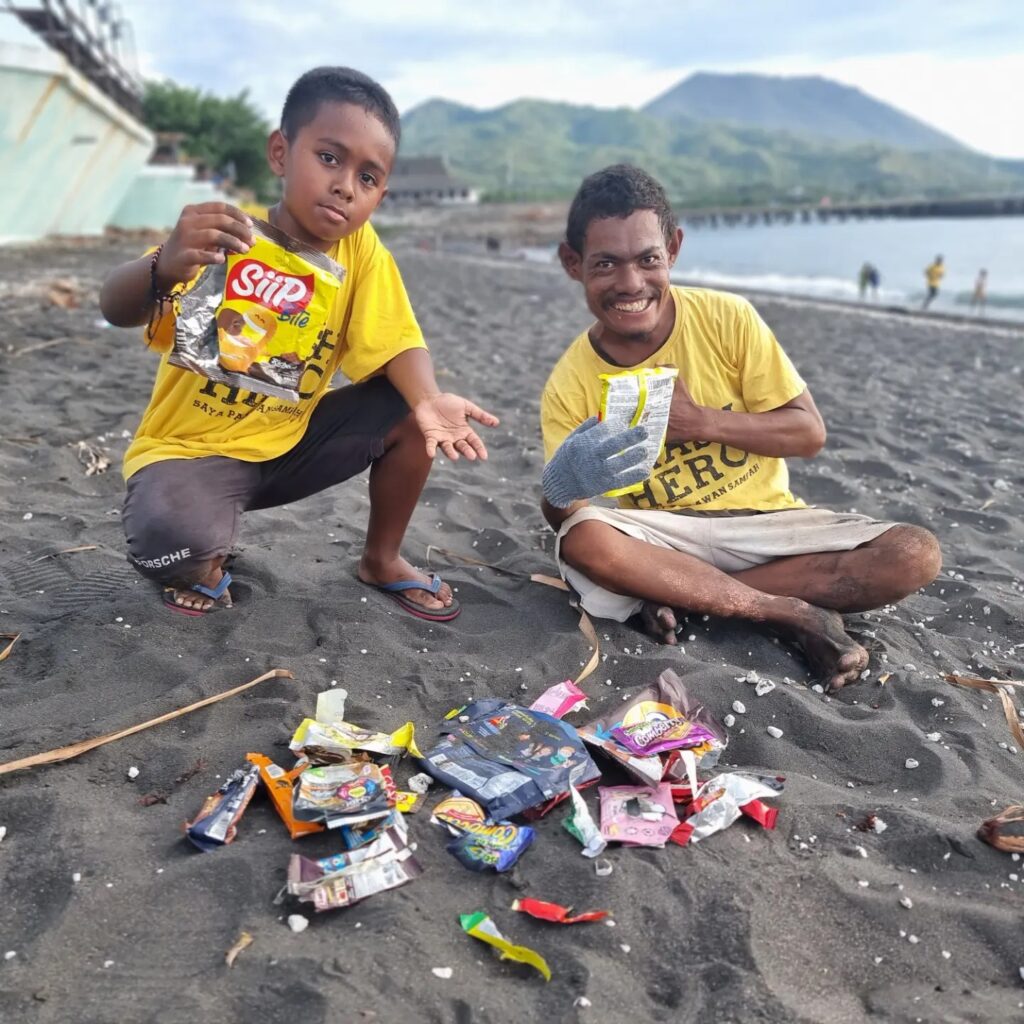
Collecting the data
Between October 2023 and February 2024, 807 volunteers organised brand audits in 50 locations across India, Indonesia, the Philippines, and Vietnam. Together, these volunteers from 25 organisations collected a total of 33,467 sachets
Alongside colleagues from YPBB, Ecoton and Greenpeace, Trash Hero Indonesia adjusted the brand audit methodology to suit sachets. They then collected and collated the data from the sachet brand audits in Indonesia and helped develop and draft the report.
Trash Hero Indonesia trained volunteers in the new process and rallied Trash Hero volunteers across Indonesia to participate. Data from Indonesia made up 29% of the total data published in the report. 476 volunteers took part, counting 9,698 sachets across 34 locations. 1,212 brands were identified. The Trash Hero Indonesia team collected and verified the data from all participating organisations in Indonesia. We want to say a big thank you to the 456 Trash Hero volunteers from 23 chapters who conducted sachet brand audits!
What did the report find?
The report identified the top ten brands responsible for sachet pollution across Indonesia, India, Vietnam and the Philippines:
- Unilever
- Wings
- Mayora Indah
- Wadia Group
- Balaji Wafers Private Limited
- Procter & Gamble
- Nestlé
- Yes 2 Healthy Life
- JG Summit Holdings
- Salim Group
The audit identified 2,678 brands in four countries—India, Indonesia, the Philippines, and Vietnam—highlighting the extensive use of this problematic single-use packaging format.

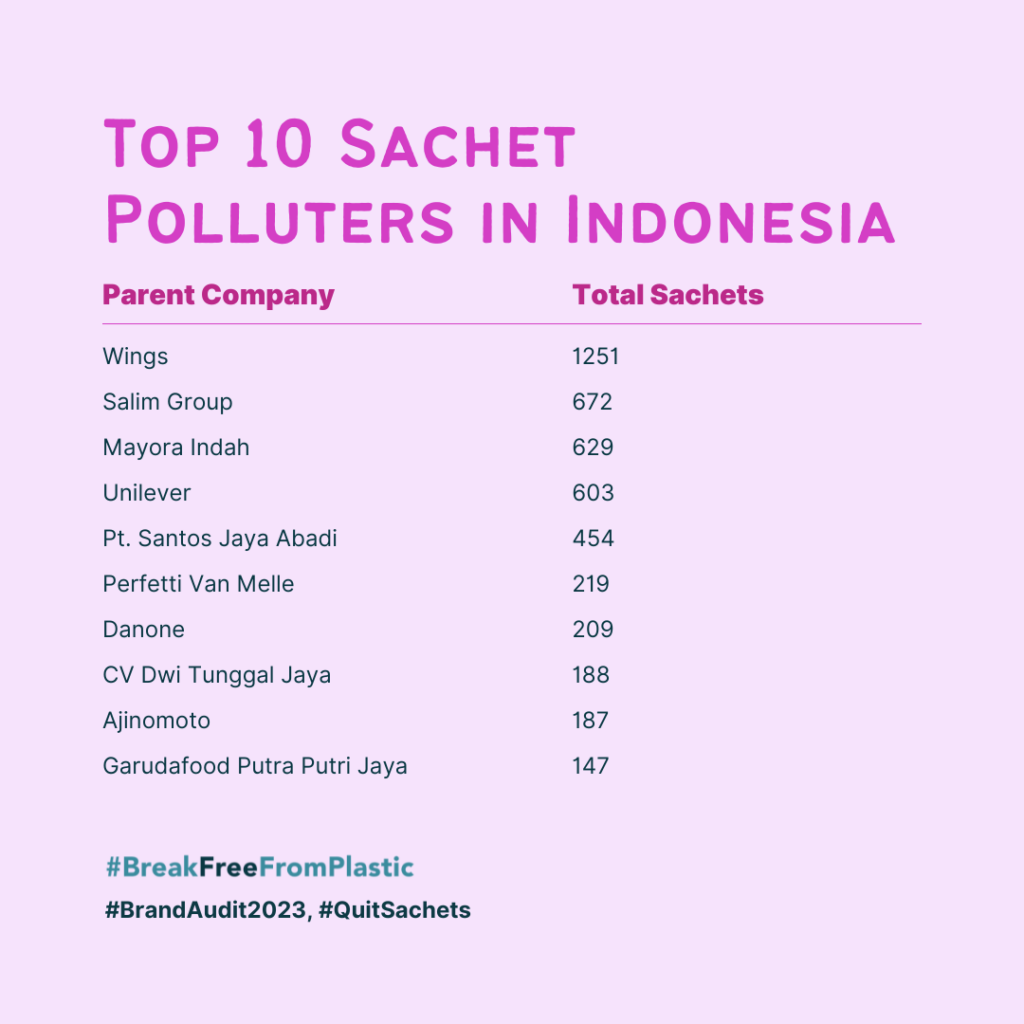
The report also revealed a concerning trend in sachet material composition. Over half (57%) of the collected samples were multilayer sachets, while only 41% were single-layer. This is important because multilayer construction, combining different materials, makes recycling these sachets virtually impossible.
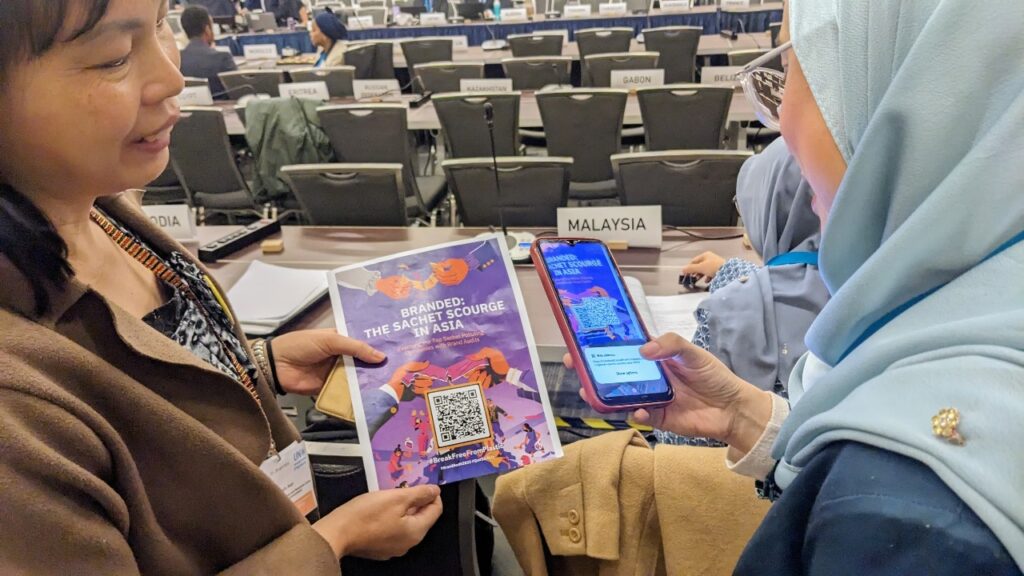
Members of the BFFP movement attended the fourth round of official negotiations for the Global Plastics Treaty and were able to present the report to country delegates.
What should corporations do?
Urgent action needs to be taken now to stop producing sachets. We, along with other members of the Break Free From Plastic movement, call on corporations to:
- Take immediate action to phase out or quit sachets, to effectively address the environmental, social and economic impacts of these single-use plastics.
- Reveal their plastic use by providing public data on the type and quantity of packaging used in different markets, and the chemicals in that packaging.
- End support for false solutions such as burning plastic and chemical recycling. Sending sachets and other plastic packaging to cement kilns isn’t recycling.
- Redesign business models away from single-use sachets and other single-use packaging of any type – including novel materials such as bio-based or compostable plastics.
- Invest in accessible, affordable reuse, refill or packaging-free product delivery systems in all markets, while ensuring a just transition for all relevant workers.
Read the full report here


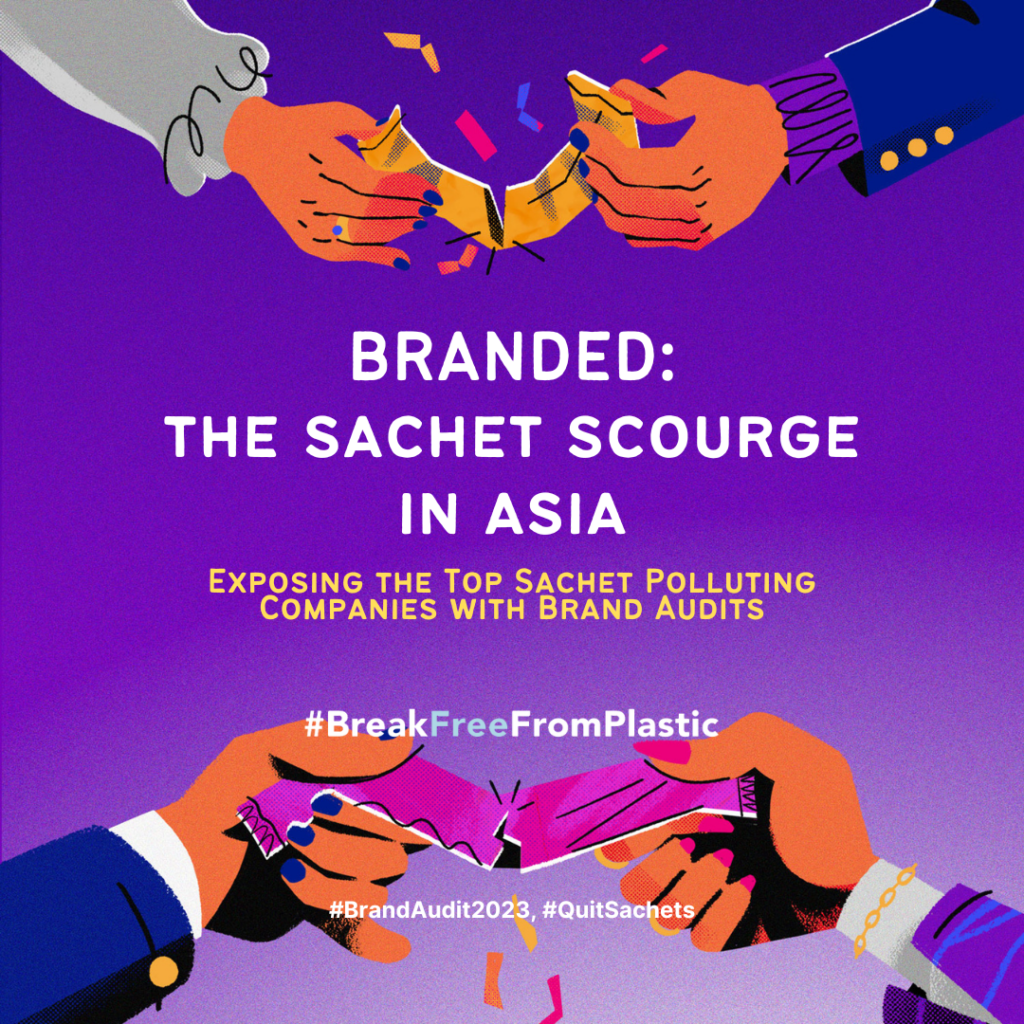
Join the conversation